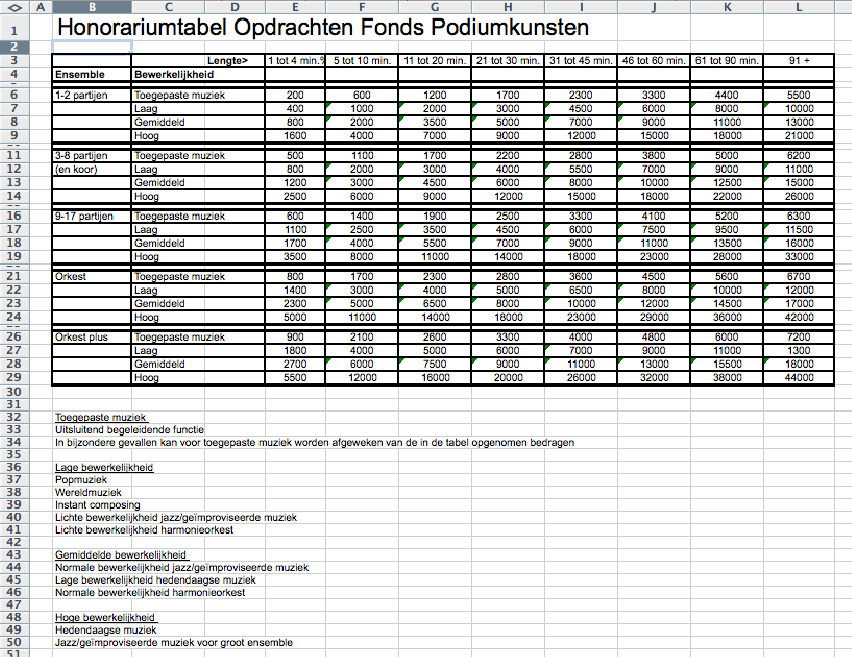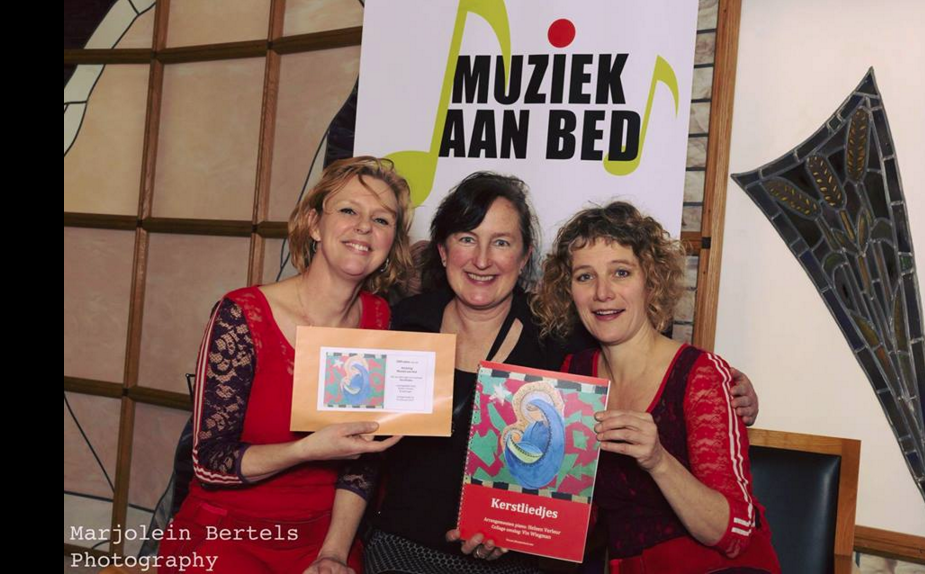Haha, nou dit lijkt me ‘wishful thinking’.
Ik wou dat het waar was.

Deze ’tips’ vond ik op internet, ze lijken misschien wat streng hier en daar maar over het algemeen is het wel goed om ze toe te passen, vind ik.. The ‘assigned reading’ waar het bij ‘At home punt 1’ over gaat, zou kunnen zijn: Ability Development from Age Zero (te bestellen bij de Suzukiwinkel.nl)) of Nurtured by Love, beide geschreven door S.Suzuki himself.
TIPS FOR SUZUKI PIANO PARENTS
by Nada Mangialetti
AT THE LESSON
1. Bring a notebook to the lesson so that you can write down not only what is taught, but how it is taught.
2. If your child sees that you are absorbed in needlework or in reading to yourself during his lesson, he may feel that what he is doing is not important enough for you to put aside what you are doing. His attitude and musical progress will suffer. If you are not willing to play an active and attentive role during the lesson, then perhaps the Suzuki program is not for you.
3. Please refrain from making musical corrections or comments about your child’s playing. This is the teacher’s job during the lesson, and your job at home.
4. Be especially careful to avoid making expressions of disappointment or delight while your child is playing. Any kind of emotionally-charged exclamations –whether positive or negative — will distract the child, break his concentration and cause him to remove his attention from the business of playing the piano and displace it to the person making the exclamation. Distractions include not only verbal comments but also groans, facial expressions, tsking, etc.
5. Regarding discipline and behavior during the lesson: if the child’s short attention span and
restlessness is the cause of behavior problems, please leave the disciplinary task to the teacher
during the lesson. Above all, refrain from constant nagging to “sit still,” “stop giggling,” etc, If,
however, the child is testing to see how much he can get away with a single word from you often will help.
6. If a reprimand is necessary try to frame it in the positive, rather than in the negative. You will find
that scolding and direct commands often set up resistance and do not make the child stop
misbehaving. Distraction is much more effective, and avoids a battle of wills.
AT HOME
1. Please complete the assigned reading. Much of the psychology and philosophy behind the Suzuki approach, which cannot be covered in the lesson, can be learned from the available books and pamphlets. It helps to regard the Suzuki program as a course that you are taking, instead of merely music lessons for your child at which you are required to be present.
2. It is your responsibility to see that your child listens to the recording every day. The importance of this cannot be overemphasized. In the absence of written music, the recording is all the child has to go on. (CDs are now available. They are easier for the child to operate himself and may be played in the car.)
3. Do not try to play along with the recording! This will cause frustration if the child cannot keep up with the pianist on the recording. Also, your piano may not be in tune with the piano on the recording; thus causing slight, but noticeable distortions in pitch, when compared to the pitch of your piano.
4. Make sure your child’s posture at the piano is correct. He must be seated at the center of the keyboard, in an erect but relaxed manner. He must have a footstool, at such a height so that his feet rest flat on it, and his knees do not bump the piano. He must have a bench or chair high enough so that when his arm is hanging down in a relaxed position, bent at the elbow at right angles, the hand will be on level with the keyboard. There are no miniature Suzuki pianos, as there are miniature Suzuki violins, so we must compensate.
5. Limit the child’s practice time to his attention span. As soon as his attention wavers, switch to another piece or a game, or stop entirely. Nothing is learned but resistance and negative feelings toward the piano. If practice time is pushed beyond the attention span (You will find that the attention span will grow naturally with the child’s age and ability).
6. Concentrate on one aspect of the piece at a time. Choose to work on either the fingering/notes or the breaths/phrasing, or the loud/soft, or the hand position/weight. While you are working on one of those aspects, overlook errors made in other aspects (For instance if you are working onloud/soft, overlook the misplacement of breaths”.
7. But when you demonstrate, take rare to perform all the aspects correctly, even though you may be
pointing out just one of them. Try to be as exact as possible in your role as model. Remember,children between the ages of 3 and 5 copy what their parents do, more so at these ages than at any other time. They will copy your errors right along with your good points.
8. Do not make verbal comments – either positive or negative while your child is playing. Save these
for after he is done. (See Tip No.4, At The Lesson.)
9. In fact, refrain from verbal explanation and criticism as much as possible. Instead, use nonverbal communication, such as demonstrating the correct way; silently moving the correct finger on to the correct key; manually “conducting” for loud/soft and for breaths/phrasing. (Observe the teacher for further non-verbal ways to communicate)
10. When you do use verbal criticism, always give the positive criticism first, the negative criticism last.
Even if the child seems to have done everything wrong, find something you can praise him for first.
(“You sat up straight! “You played it all the way through!”)
11. Phrase the negative criticism in the positive, and use an emotionally neutral tone of voice. You are giving the child information, not scolding him for naughty behavior. Say, “We need a breath at this point,” rather than exclaiming with annoyance, “You didn’t take a breath here!”
12. Children between the ages of 3 and 5 delight in repetition and will not find it boring, unless you communicate this attitude to them. (Then they will copy your attitude.) If you are tired of listening to the same pieces over and over, please do not communicate this attitude to the child, either by direct statement, (“Oh, not ‘Twinkle’ again.” or by sighs and groans.)
13. Dr. Suzuki has said that the word “patience” should never be applied to the learning experience by either the teacher or the parent. Patience has the connotation of controlled frustration . . . Very few parents show impatience when an infant is learning to walk or to talk. They realize that the child has an inner timetable, and he will progress at his own rate. Yet when the child begins his intellectual learning or the learning of a skill, the attitude changes. Many parents become over-anxious, impatient.
14. Although all normal children can learn music, they do learn at different rates. One child may need 500 repetitions to learn something well; another child may do it well after only 50 repetitions.
The point is, both can learn it. Problems arise when you give up too soon, with the excuse that he “has no talent.” “I can’t,” then becomes a seIf-fulfilling prophecy. Dr. Suzuki teaches that “talent” is largely the result of environment and training. Although our genes do determine our limits, we tend to use them as an excuse. The person who has fulfilled his genetic potential to its utmost would truly be an exception.
15. Ask the child to do or to answer only tasks and questions which you know he can do or answer correctly. Never ask him to do something which he is physically, intellectually or morally incapable of doing at his particular stage of development, or else it will make him feel stupid, naughty or like a failure.
16. Physically, the nervous system is not fully developed until age 14. What the child sees and hears is actually different from what you see and hear. Intellectually, what may seem obvious to you may be a concept which the child has not yet developed, and cannot develop until a certain age. Morally, children are not born “good” or “bad.” They learn the sense of right and wrong from their parents, mostly by imitating. Beware of creating inconsistency between your own action end those which you demand of the child (as in, “Don’t do as I do; do as I say,”) Modeling is the basis of the Suzuki approach.
17. Don’t evaluate your child’s progress on the basis of what book he is in, or what piece he is on. Rather, evaluate him according to how his technique and musical understanding has improved. (Instead of saying, “Mary, what piece are you up to now?” say, “Mary, how’s your legato coming along?”)
18. Review earlier pieces. When recital time rolls around, it is best to have the child play an “old” piece
from his repertoire … and play it well, instead of having him play the newest piece he has been working on … and be uncertain of it.
19. Now, reread the “tips” – keep in mind how they have a wider application than just to piano lessons! Remember, Dr. Suzuki’s aim is not to mass produce child prodigies or professional musicians. In his own words, “Teaching music is not my main purpose. I want to make good citizens. If a child hears fine music from the day of his birth, and learns to play it himself, he develops sensitivity, discipline and endurance. He gets a beautiful heart.”
Nada Mangieletti is a Suzuki piano instructor at Westchester Conservatory of Music, White Plains, N Y
Zondag 12 maart om 18.10 uur is Muziek aan bed (van de kerstactie met het kerstboekje) live bij Podium Witteman in de uitzending!
Podium Witteman is het wekelijkse muzikale feest van presentator Paul Witteman. Samen met huispianist en cabaretier Mike Boddé en muzikale spin in het web Floris Kortie ontvangt hij gasten met bijzondere verhalen, ons dus! Daarnaast is er ruimte voor jong talent en zijn er live optredens van topmusici.
Allemaal kijken dus zondag 12 maart om 18.10 uur op NPO 2.Verder in de uitzending op 12 maart:Paul Witteman ontvangt de Russische pianist/filantroop Elena Rostropovitch, gitarist Rafael Aguirre, dirigent Conrad van Alphen en Sinfonia Rotterdam.

Elena Rostropovitch is de dochter van een van de beroemdste cellisten aller tijden: Mstislav Rostropovich. Elena is van huis uit pianist, maar tegenwoordig is ze vooral actief als filantroop. Ze steunt wereldwijd projecten ten behoeve van de gezondheid van kinderen. In Podium Witteman vertelt ze over haar beroemde vader, die tien jaar geleden overleed. Celliste Quirine Viersen kreeg les van Rostropovitsj en speelt muziek van Benjamin Britten, die de componist speciaal voor Rostropovtisj schreef.
Conrad van Alphen
Conrad van Alphen is dirigent van Sinfonia Rotterdam, hét kamerorkest van de havenstad. Op hun programma staat de Water Music van Georg Friedrich Händel. Deze feestelijke muziek begeleidde precies 300 jaar geleden een boottochtje van de Engelse koning over de Theems. Het was zo’n succes dat de muziek drie keer herhaald moest worden. Conrad van Alphen vertelt het hele verhaal.
De Spanjaard Rafael Aguirre is een van de meest gevierde gitaristen van dit moment. Hij is in Nederland voor een recital en blijft op Pauls verzoek een dag langer voor een optreden in Podium Witteman.